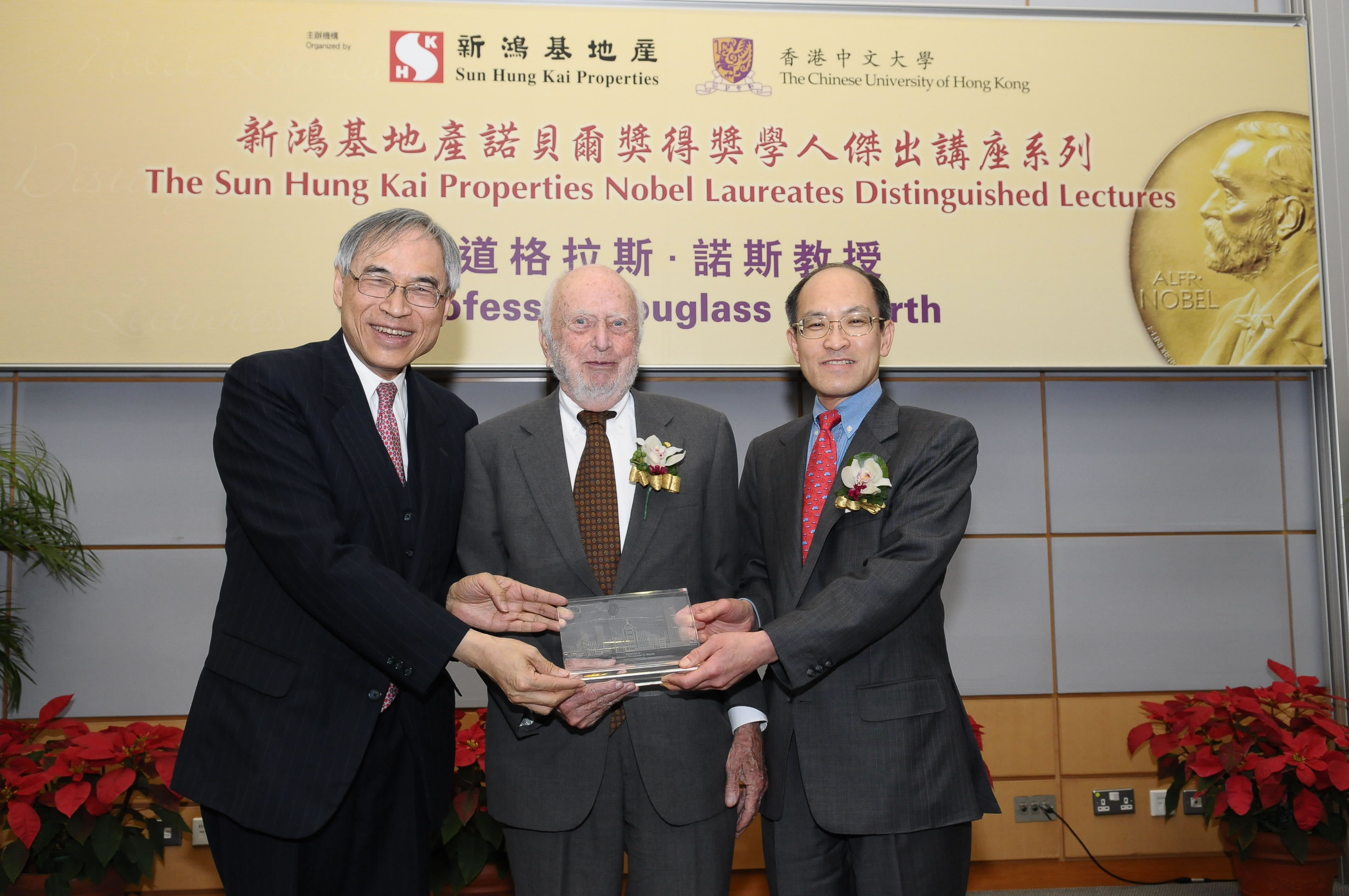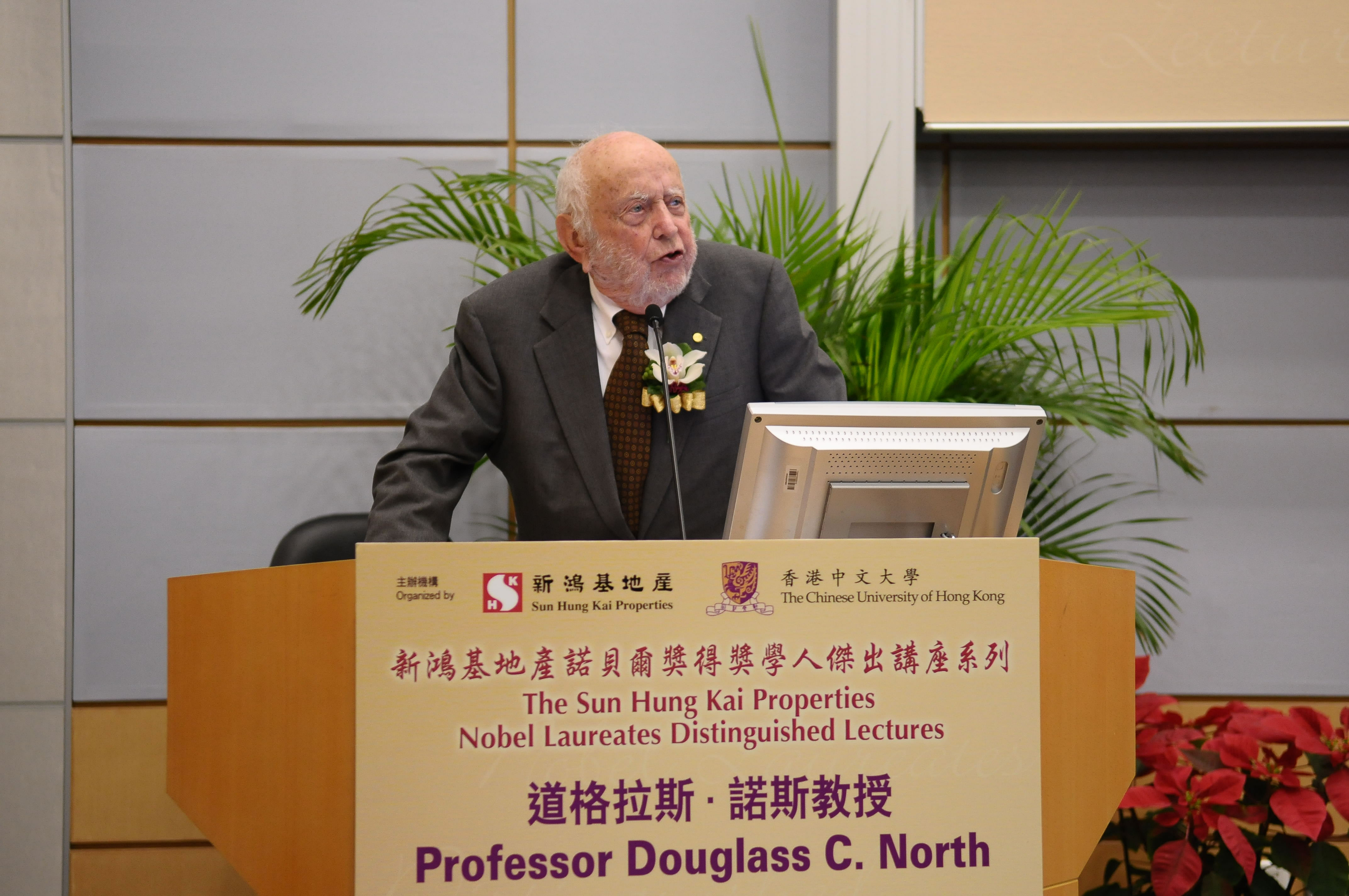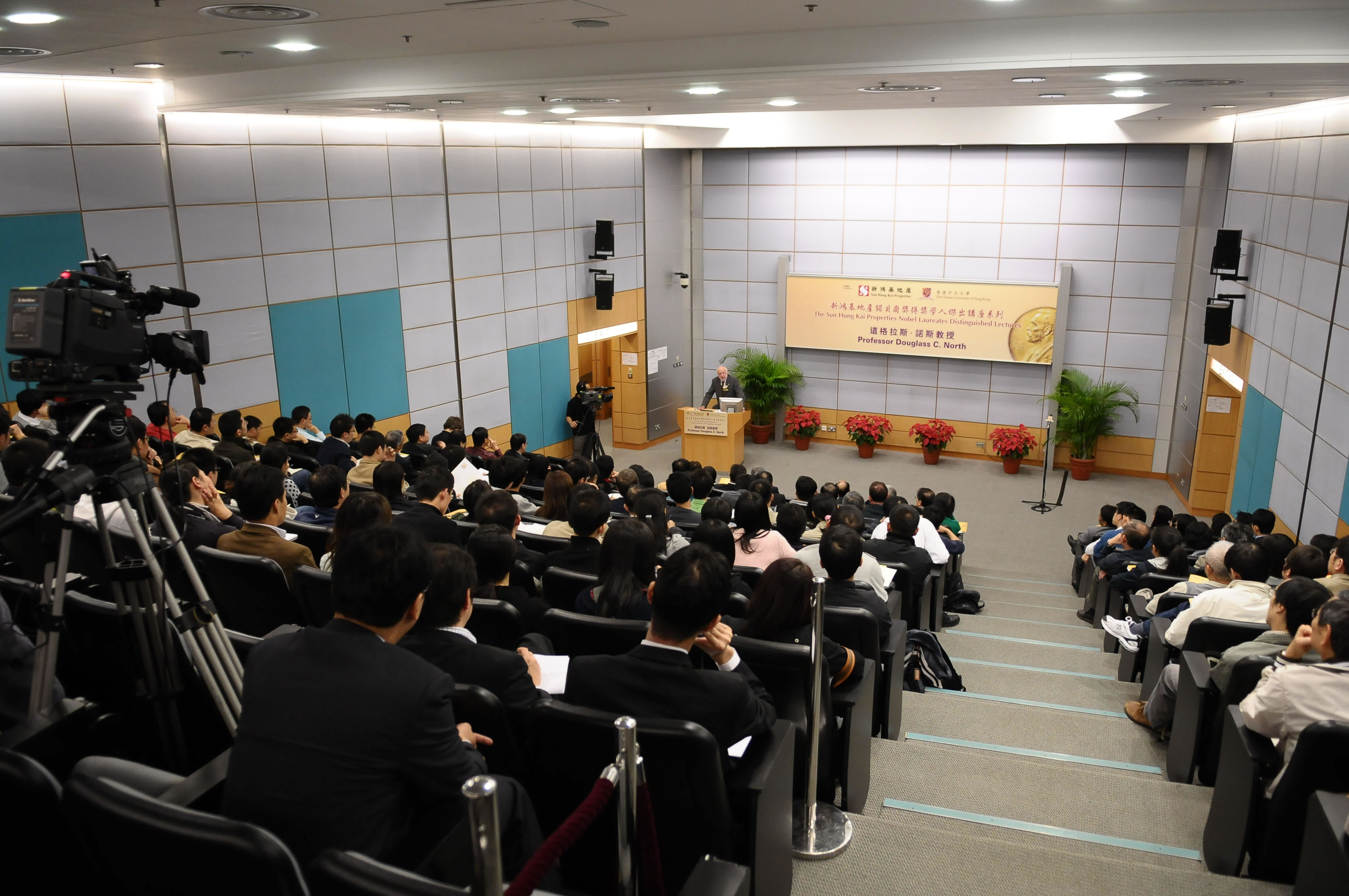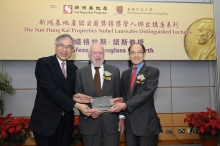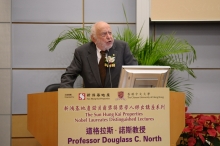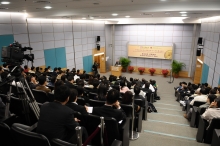CUHK
News Centre
SHKP and CUHK Present Nobel Economist Lecturing onNew Approach to Understanding the Dynamics of Societal Change
Sun Hung Kai Properties (SHKP) and The Chinese University of Hong Kong (CUHK) presented a lecture by Douglass North (1993 Nobel Laureate in economics) on The Dynamics of Societal Change: A New Approach today (December 11). The lecture attracted an audience of close to 200, including politicians and business people and CUHK staff, students and alumni.
SHKP Executive Director Michael Wong said, “Sun Hung Kai Properties is committed to promoting education and encouraging life-long learning and innovation. With the current financial crisis, Hong Kong people should equip themselves for the challenges ahead. Our lecture series is in its fifth year of offering the people of Hong Kong the insight of world-renowned scholars to broaden their horizons, enrich knowledge and stimulate a passion for learning.”
CUHK Vice-Chancellor Lawrence Lau thanked SHKP and its Vice Chairman Raymond Kwok for their support over the last five years. He added, “Professor North is an inspirer, a producer of ideas, who identifies new problems and shows how economists can solve the old ones more effectively. On behalf of The Chinese University of Hong Kong, I would like to express my utmost gratitude to Professor North for giving us the opportunity to host another Nobel Laureates Distinguished Lecture by him.”
Professor North addressed the limitations of conventional economic theory, which only deals with how an economy operates at a moment in time. A new approach was proposed for understanding the dynamic process of societal change that is at the heart of all economic development – whether the restructuring and rapid economic development seen in China over the past three decades, the prognosis for the decades to come or the need for system restructuring by the western world as it attempts to deal with the current financial crisis.
Professor North won the 1993 Nobel Prize in economics with Robert Fogel for “having renewed research in economic history by applying economic theory and quantitative methods in order to explain economic and institutional change”. His life-long quest has been complex variations on a simple theme: Why do some countries become rich, while others remain poor? During the past several years, he has begun to use insights from cognitive and behavioral science to better understand economic change over time. His research in this area is set forth in his bookUnderstanding the Process of Economic Change. Another book: Violence and Social Orders: A Conceptual Framework for Interpreting Recorded Human History is forthcoming.
The lecture was shown live at local universities and the Hong Kong Science & Technology Parks to reach a broader audience. It was also available on the Hong Kong Education City web site for online viewing, and there was a live feed to the Peking, Fudan, Shanghai Jiao Tong, Tsinghua, Zhejiang, Nanjing and Sun Yat-sen universities on the mainland.
SHKP and CUHK marked the fifth year of the Nobel lectures by having three economics Laureates address the current state of the global economy. The first was delivered by Kenneth Arrow (1972 Laureate) on Economic Analysis and Social Obligation on November 3. The second, Financing Retirement: Collective and Individual Approaches, was delivered by William Sharpe (1990 Laureate) on November 29. The trilogy of lectures was warmly received by the academia and the public.
The Sun Hung Kai Properties Nobel Laureates Distinguished Lectures were inaugurated in 2004 with The Chinese University of Hong Kong. The series brings Nobel Laureates to speak to a broad cross-section of the community, to promote the discovery and the dissemination of knowledge, encouraging life-long learning and innovation. With this 16th installment of the series, 23 Nobel Laureates or renowned scholars have lectured in Hong Kong.
SHKP Executive Director Michael Wong (right) and CUHK Vice-Chancellor Lawrence Lau present a souvenir to Douglass North, 1993 Nobel Laureate in economics


